theartsdesk Q&A: Actress Siân Phillips | reviews, news & interviews
theartsdesk Q&A: Actress Siân Phillips
theartsdesk Q&A: Actress Siân Phillips
The splendid Welsh actress who married Peter O'Toole and lived to tell the tale
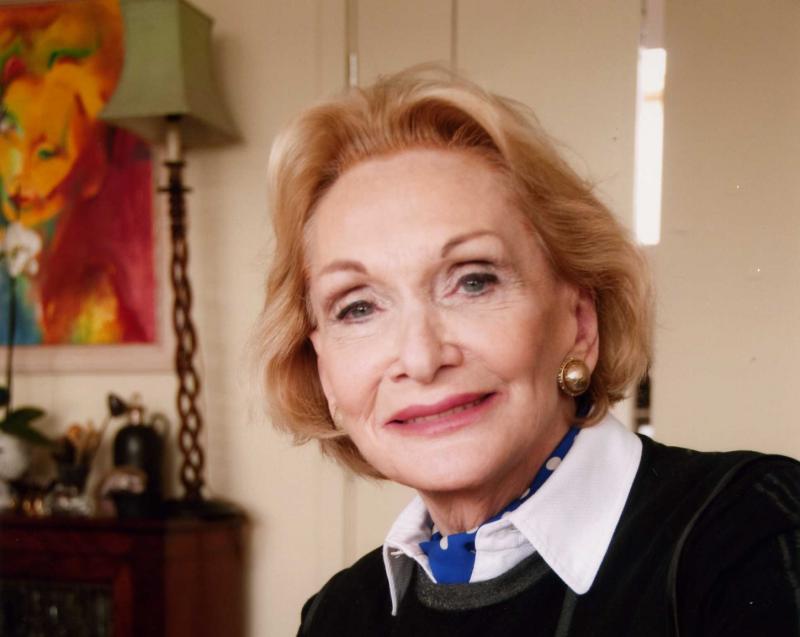
Siân Phillips (b 1933) belongs to a remarkable generation of British actresses. They include Maggie Smith, Judi Dench, Eileen Atkins, Vanessa Redgrave, Joan Plowright and Sheila Hancock. Although just as indomitable a presence on stage and screen, Phillips is set apart from them not only by dint of her Welshness – Welsh was her mother language as a child – but also by the curious shape of her career.
As she has detailed in two memoirs – Private Faces (1999) and Public Places (2001) - Phillips was originally called Jane, but a schoolteacher Cymrified her name for her in class and it stuck. She began working in Wales at a very young age when only 11 years old, and was all but a veteran by the time she reached RADA at 20. Two years into an extremely successful career, in which she played Hedda Gabler and St Joan, she met and married Peter O’Toole, whereupon her career virtually seized up for two decades. O’Toole was only one of her three husbands, but she is devastatingly frank about the length of the shadow he cast.
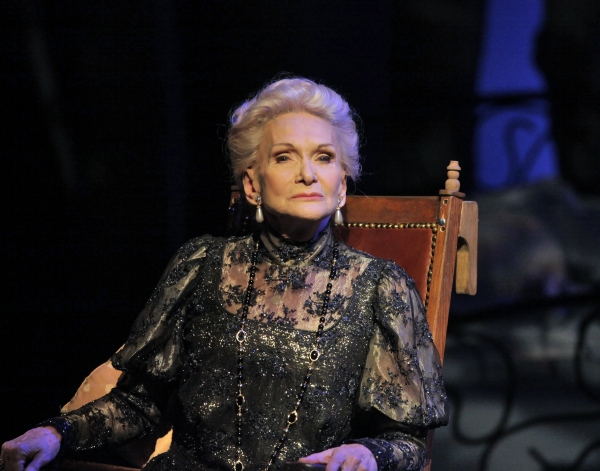 It was only once she escaped the marriage that she began working again. The roles with which she is most readily identified from the 1970s are the terrifying Livia in the BBC’s landmark I, Claudius and the faithless Lady Ann, wife of George Smiley in Tinker Tailor Soldier Spy and Smiley’s People. Then something strange happened in 1980s. Despite never having sung a solo in public, she was cast in the Stratford East production of Pal Joey, which went on to do tremendous business in the West End and won her an Olivier award. She became a star of the musical theatre, appearing in Gigi, A Little Night Music (at the National) and, above all, Marlene. Most recently she returned to A Little Night Music in a production with an opera company in St Louis (pictured above, Phillips as Madame Armfeldt), and before Christmas she performed a series of her one-woman cabaret show at Wilton’s Music Hall in the East End.
It was only once she escaped the marriage that she began working again. The roles with which she is most readily identified from the 1970s are the terrifying Livia in the BBC’s landmark I, Claudius and the faithless Lady Ann, wife of George Smiley in Tinker Tailor Soldier Spy and Smiley’s People. Then something strange happened in 1980s. Despite never having sung a solo in public, she was cast in the Stratford East production of Pal Joey, which went on to do tremendous business in the West End and won her an Olivier award. She became a star of the musical theatre, appearing in Gigi, A Little Night Music (at the National) and, above all, Marlene. Most recently she returned to A Little Night Music in a production with an opera company in St Louis (pictured above, Phillips as Madame Armfeldt), and before Christmas she performed a series of her one-woman cabaret show at Wilton’s Music Hall in the East End.
“I’m never offstage,” she tells theartsdesk. She appears in Lovesong, a play by Abi Morgan for Frantic Assembly. Working with a company which marries movement and the spoken word finds Phillips in her late seventies, having already sportingly disrobed in Calendar Girls, becoming a sort of dancer. We meet in a dressing room at the Lyric Hammersmith. Her face in repose has a stony magnificence. In conversation it ripples delightfully and the tinkle of laughter ornaments a Welsh accent which she has allowed herself to reseed.
'You're all scum': Siân Phillips as Livia in I, Claudius
JASPER REES: In Lovesong you play the more senior incarnation of a woman who is played by a younger actress. Do you have reconnect with your younger self?
SIÂN PHILLIPS: I think people do that anyway. They are not young and then middle-aged and then old. I don't think life is like that. Some people are middle-aged when they’re really young. Most people when they’re old behave very much like their young selves. This was brought home to me last year when I played Juliet for the first time. We played it in a care home and it was surprisingly convincing that these old people should be uttering this text which is a very passionate young love story. We didn’t have to alter everything except the obvious technical things like virginity. It was perfectly feasible to us and to the audience that these old people should have these feelings.
Are you making up for lost time?
I don't know that I still am but there certainly was an element of that in my life over the last 20 years. I did feel that I had lost so much ground. I went off like a rocket when I was very young. It was very easy for me. Everything just fell into my lap.
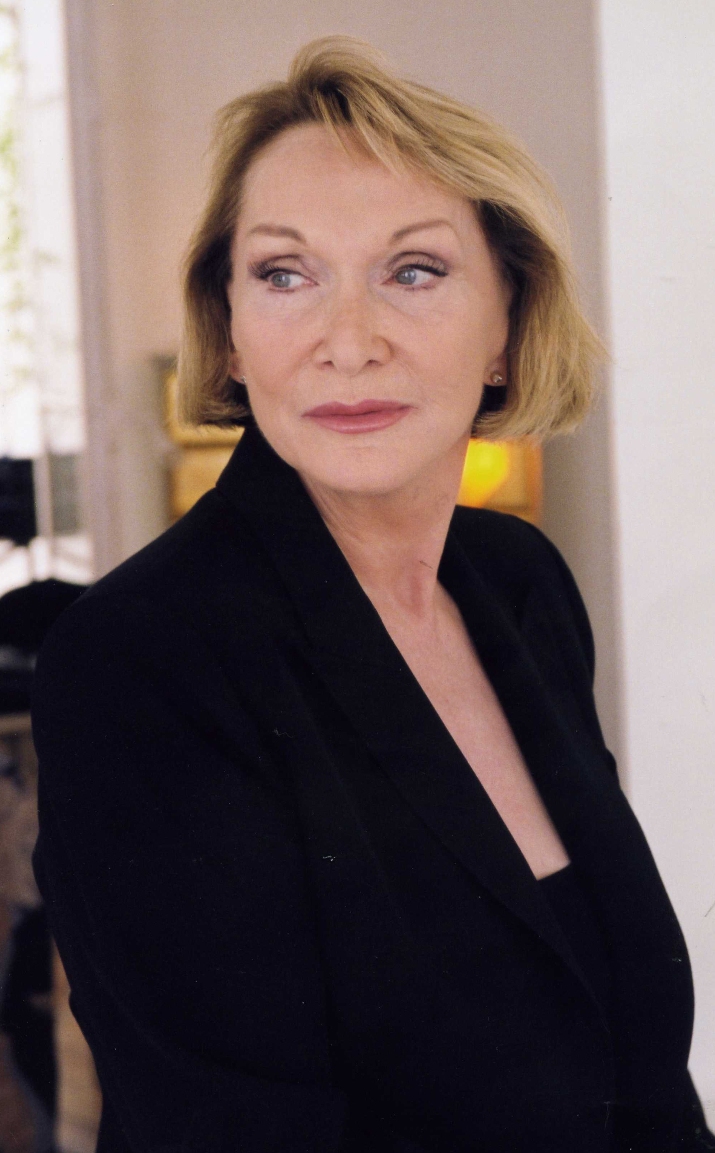 Why did it go off like a rocket?
Why did it go off like a rocket?
I took it for granted at the time that everything was going to be terribly easy. I didn’t even question it, I’m afraid. Everyone in Wales said, “You can’t go and be an actress, because it’s going to be terribly hard,” and I thought, it’ll be all right. And of course it was all right. And then it went terribly wrong.
Where did you grow up in Wales?
Gwaen-Cae-Gurwen and the surrounding villages within about a five-mile radius of the foothills of the Black Mountains. There was no English at all. My grandparents were monoglot Welsh speakers. My grandmother’s English was confined to about 10 words.
Was the "Welsh Not" spoken of in your family?
My mother suffered that in grammar school. She was put out in the yard with a "Welsh Not" slate round her neck for speaking Welsh. It was before the First World War. I don’t think it registered much. It didn’t make a dent in the fact that everybody spoke Welsh. They paid lip service to speaking English in school. By the time I was at school it was really considered smart to speak Welsh all the time. And we had a Welsh teacher Ike Davies who invented a lot of the modern technological words, because the language wasn’t moving fast enough. He invented all the words for rugby football, for instance.
The only time we would speak English was when we played the Shakespeare game
At what point did English start to to supersede Welsh for you?
I always felt Welsh was my first language until my thirties. And then it began to lose ground. I really worry now. When I have to go to Wales to do an interview I don’t have the words for anything abstract. I can talk about the weather and soft furnishings but I can’t talk to you about my feelings because I don’t have the vocabulary.
You started working in Welsh at the BBC at the age of 11. What were you doing?
The very first thing I did was to repeat something I’d done at the National Eisteddfod, which was a dramatic recitation which I’d won. Because they liked it I was used in Children’s Hour and read poetry. There used to be a lot of poetry. There were things called feature programmes which were like sound documentaries. Gradually I was in Saturday night theatre. We used to feed into the network a lot in those days.
So you read cynghanedd on the radio.
Oh yes. That first recitation was a piece of cynghanedd in the old meter.
Was it a good training?
Tremendous. It was absolutely wonderful. To be taught to recite - I don’t suppose anybody is any more. My granddaughter would be very surprised if I were to teach her to recite, I would think. My mother who was a teacher just taught me just so my memory would be good. We were even required to write cynghanedd at school. Everybody would be sitting there writing poetry in the old metre. That really is so much harder than Shakespeare, for instance. Shakespeare was a doddle. We even had a game going. We were completely Welsh-speaking children and the only time we would speak English was when we played the Shakespeare game when we were about eight or nine. We would make up blank verse. We could do that for hours. We were used to rhythm, assonance, dissonance, alliterations, internal rhymes, external rhymes.
I suddenly knew that I would be in a place where nobody thought about anything except acting and they would all be like me. I was in the perfect place
When did you start to work in English?
I worked for the BBC all the way through my university years as an announcer and a newsreader and I worked for the BBC repertory company as well. I went to university at 17. I was desperate to go to RADA but there was obviously no way round this. I had to go to the university. There was just no question. I did understand why. My parents came out of the Thirties Depression and naturally they didn’t want a child to go into an insecure profession. That was why all the Welsh children in my school all became barristers and doctors out of nothing, with no money whatsoever. I don’t know how the parents ever financed what they had to but they did. They were just determined that their children were going into the professions. The children were jet-propelled out of those villages to Oxford and Cambridge.
My scholarship was to London when I was 16. But they don't take anybody in England till you’re 18. The only place that would take me was the University of Wales at 17. I couldn’t wait another year and I didn’t want to go to London either. I loved where I lived. So I dreaded the time I would have to go, but I knew I was going. [The playwright] Saunders Lewis said, “You have to leave Wales. You have to go to London.” I think most people did have to go. Singers had to go to join the English opera companies. The actors all went to London – Richard [Burton], Hugh Griffith, Emlyn Williams. There weren’t that many of us but that generation had gone.
Did you go with a heavy tread?
I went to London with a heavy tread because I had not liked Cardiff. I found Cardiff really difficult to live in after living in the country. I didn't enjoy that at all. I thought, "London is going to be even worse." I got off the train and I fell in love with it. I just adored it. RADA was without a doubt the happiest time I had ever known to that date.
Did you feel you were in some way betraying Wales?
I didn’t give it a thought. I just adored RADA from the minute I walked through the door. It lived up to every expectation I had had, on no knowledge as a child. I suddenly knew that I would be in a place where nobody thought about anything except acting and they would all be like me. And they were. I was in the perfect place.
And then it all fell into your lap.
While I was at RADA all the agents came to ask if they could represent me. It was ridiculous.
Can you put your finger on what it was they liked?
No. Absolutely not. Everyone was talented - I understood that. I wasn’t dumb enough to think that I was that different from anybody else. I think it was simply that I had wanted it for so long. It had been dammed up. I think the reason I attracted so much luck - and I think it was luck - was that my total enthusiasm and my joy in what I was doing was so gigantic that I think it just attracted things.
You were also a looker with good cheekbones. The camera liked you.
Well, maybe, although I wasn’t a fashionable looker as a young girl at all because it was still the era of the girl next door and the Doris Day hair, and I just didn’t have that.
Would it have been your Welshness?
I doubt it because I don't think anyone knew I was Welsh. It didn’t arise.
Wasn’t it in your accent?
It wasn’t so much. I think I’ve sort of reintroduced it rather because it’s fashionable now not to speak RP. It was the BBC that did it actually. I used to have to read a 15-minute English bulletin followed by a 15-minute Welsh bulletin and both had to be standard. We were given pronunciations every day and a lot of criticism. It was very hard being an announcer. That was the period when I got really thin. I think I lost about four stone in about six months. I was on the edge of my seat with fear the whole time.
What did your parents make of the career that subsequently happened?
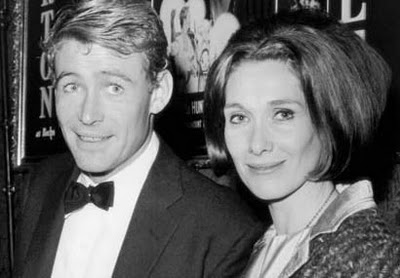 My father died quite early on, just after I had got married to Peter O’Toole. And my mother, I don’t know. It was complicated for her. Part of my problem for her was my marriage was very demanding and my career was getting pushed to the wings, and everything I’d built up was destroyed and all the people who helped me disappeared because they were so mad at me for making this marriage. I was a very unpopular girl. So I suddenly didn't have a friend in the world and I think she was really very torn, because she thought maybe a good wife should look after her husband and the house. She was a bit conflicted about what I should have been doing, so she could see that any success I had was likely to cause friction or trouble at home. She just wanted me to keep quiet. She wasn’t any help - put it like that.
My father died quite early on, just after I had got married to Peter O’Toole. And my mother, I don’t know. It was complicated for her. Part of my problem for her was my marriage was very demanding and my career was getting pushed to the wings, and everything I’d built up was destroyed and all the people who helped me disappeared because they were so mad at me for making this marriage. I was a very unpopular girl. So I suddenly didn't have a friend in the world and I think she was really very torn, because she thought maybe a good wife should look after her husband and the house. She was a bit conflicted about what I should have been doing, so she could see that any success I had was likely to cause friction or trouble at home. She just wanted me to keep quiet. She wasn’t any help - put it like that.
You’ve written a whole book about that period of your life.
Well, I didn't write it very well because I couldn’t, quite honestly. I’m not a good enough writer. I think I failed completely. It’s like holding sand in your hands. I was editing in my head, I was censoring what I was saying. I didn't feel entitled to betray somebody I had been very close to just because I had been very close. I didn’t feel that I would just say anything I wanted to.
You were trained to be a theatre actress and of course you mustn’t be the face of Revlon
Do you wish you had?
I still don't think I am entitled and, no, I don't wish. But I wish I’d written a better book, of course.
Do you know if he ever read the book?
No, he says he did not read the book, and his remark to somebody who said, “Siân has written a really good book” – because I really was quite nice about him – was “I don’t read pornography”.
How much time did you have of professional fulfilment before marriage?
It was very brief. We’re talking about maybe two years. I had a very unusual contract. This millionaire who wanted to invest in the theatre was advised to go and look at this strange girl, so I was on the payroll. I was on the cusp of a different time. I was told, “Of course you have to go and do the theatre, and cinema is rather infra dig and not very good and television is absolutely out of the question. You were trained to be a theatre actress and of course you mustn’t be the face of Revlon with this huge amount of money because really you’ll never be able to work again.” Within a year or two of my making all these decisions everyone was desperately trying to get into the movies. Edith Evans was trying to get into the movies! Everybody was longing for those opportunities. People were doing voiceovers, people were getting rich. And I had cut off all that. And then I got married as well. So I couldn’t even paddle fast and retrieve my situation.
What was the way in which in the marriage you were unable to work?
Of course I had children almost immediately. He wanted children, which I had never thought of. I had never seen myself in a white frock getting married or with a baby. It just never occurred to me that I would do anything like that. So suddenly I’m doing all this and he said, “This is your job, I’m now not going to help or have anything to do with it.” It was quite a thing to have a family. I’d never seen a baby in my life. I’d never cooked a meal, cleaned a room. It was a really fast learning curve and I was really isolated. I had no friends, no family, no help and it was hard. It was a very, very strange life.
I went on working somehow and I think what happened was as simple as this. Every relationship I had ever been in the guy had said, “You have to give up acting.” It had happened all my life. When I met O’Toole I thought, now this will never happen because he’s such a free spirit, such a maverick, such an amazing person. That could never happen. Emlyn Williams had urged us to get married. He said, “Marry, Siân, and become a famous couple in the theatre.” Well, of course it didn’t work out because in the most subtle way possible he made it almost impossible for me to work. But it was so subtle I didn’t even see it happening.
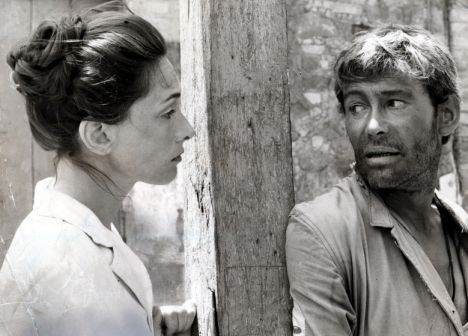 Did he know he was doing it? (Pictured, Phillips with O'Toole in Murphy's Law)
Did he know he was doing it? (Pictured, Phillips with O'Toole in Murphy's Law)
No, I don’t think he did. He was not that unpleasant. His people would say, “It’s all right for her to work so long as she doesn’t get in his way. She mustn’t embarrass him in any way. So long as it’s fairly quiet that’s all right because his progress must not be interfered with in any way.” It was hurtful obviously that his people would treat me like that but I kind of had to accept it. That was what it was. And it wasn’t him, it was his people. But he didn’t make it his business to be aware of that and I never told him - it was impossible. He’d become a major international movie star, apart from anything else, and it was a full-time job keeping his career on track.
I’d never sung alone in public ever. I was the unmusical one of the family
Did you resent his career?
Not at all. I admired him so much. That was the other complication. I was surprised he didn’t give me an opportunity to do my work.
When did you start to become fulfilled as an actress?
When I realised I was going to have to leave the marriage. But that was after about 16 years, 17 years. It took another few years to do. As I realised that I started to work properly again. The actual turning point was Shoulder to Shoulder, the television series about suffragettes. I’d never worked with women ever. It was an eye-opener for me. I made very strong friendships in that series and thought, "My God, they lead a completely different life from me." I’d never had friends. His life had to be protected and so I had to divorce myself from everything in my life. I was alone really all through the marriage.
It sounds incredibly depressing.
But of course I was madly in love with him. I adored him, so it was really difficult. And of course I kept working.
You were in the odd film with O’Toole.
Oh, but those were something I never wanted to do. I hated working with him because he was so vile to me, he was absolutely ghastly to me. He would refuse to rehearse with me.
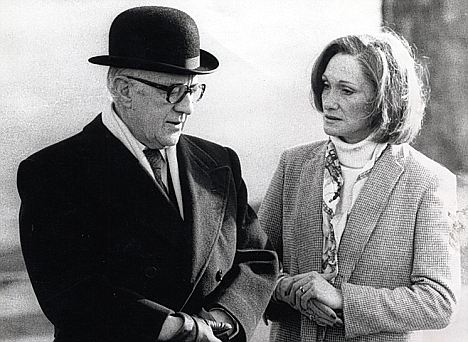 Why?
Why?
I think he was afraid I wouldn’t be good enough. I don’t know what it was.
Did you sense that I, Claudius made a difference to your visibility, given that it was hugely popular?
I wasn’t aware of that at all. If you were in it you wouldn’t have known. Every six months or so I would do another Masterpiece Theatre series. How Green Was My Valley, Tinker Tailor (pictured above, Phillips with Alec Guinness). There was Tolstoy, Dostoevsky. It just went on and on for a decade.
Have you seen the new Tinker Tailor Soldier Spy?
I didn't understand the first one and I was in it.
At what point did you start to reconnect with Wales?
I didn't lose my connection because my parents lived there, my family lives there and I used to go back all the time. Then my mother came to live with me after my father died so I spoke Welsh every day at home with her and I always worked in Wales. That was a constant. I’ve never left Wales in that way.
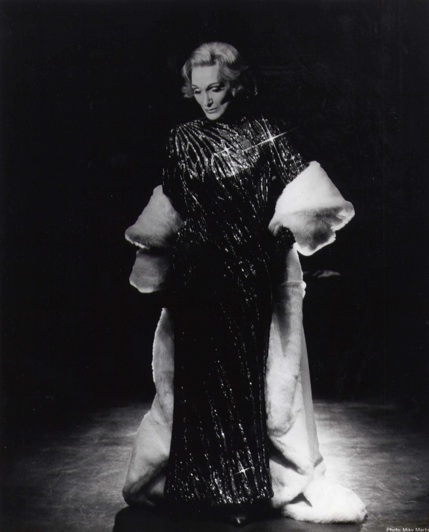 Did you ever imagine that you would end up in musical theatre?
Did you ever imagine that you would end up in musical theatre?
No, never! Not at all. It was a mad director who said, “Do this.” I didn't know him and I thought, "Of all the ridiculous..." But of all the scripts on my table that was the best one: Pal Joey. He kept saying, “Go on, girl, do it. You’ll be fine.” It was on the fringe, it was in the Mile End Road, it was a mad production. Nobody in the West End would have given me that part. But of course it turned into a smash hit.
How confident a singer were you?
Not at all. I’d never sung alone in public ever. I mean I could sing, I could read music, I’d been listening to music all my life. But I was the unmusical one of the family. My father was so good, his brothers were so good and his friends were so good. I was the one who wasn’t any good. And I’m still not. I started to take lessons and I’ve taken lessons ever since. I take lessons now. I just had to keep practising.
So what made you start doing a one-woman show in which the spine of the show is singing?
It was because of Marlene. The end of Marlene was a half-hour cabaret and I was getting offers from all over the world saying, “Come to Paris, do a cabaret.” And finally the guy who taught the cabaret section of the play, Thierry Harcourt, said, “Why don't you put a show together? Why don't you accept one of these jobs? They’re very well paid.” A man from Israel came to see Marlene and offered me a month of anything I wanted to do. And this friend of mine said, “Now’s your chance, learn 50 songs and write something and put a show together.” That was about 12 years ago.
How long do you think you can go on working?
Oh, I don’t know. I suppose I’ll just go on till I fall off the perch. I haven’t had to address it. In our business there is no retirement age so it’s not something that’s in your calendar. All of my friends are still working. I don’t know anybody who isn’t working like I do. If I break a leg I’ll think about it.
- Love Song at the Lyric Hammersmith from 11 January to 4 February, the Citizens Theatre in Glasgow from 7 to 11 February and the Sherman Theatre in Cardiff from 15 to 18 February
Explore topics
Share this article
Add comment
The future of Arts Journalism
You can stop theartsdesk.com closing!
We urgently need financing to survive. Our fundraising drive has thus far raised £49,000 but we need to reach £100,000 or we will be forced to close. Please contribute here: https://gofund.me/c3f6033d
And if you can forward this information to anyone who might assist, we’d be grateful.

Subscribe to theartsdesk.com
Thank you for continuing to read our work on theartsdesk.com. For unlimited access to every article in its entirety, including our archive of more than 15,000 pieces, we're asking for £5 per month or £40 per year. We feel it's a very good deal, and hope you do too.
To take a subscription now simply click here.
And if you're looking for that extra gift for a friend or family member, why not treat them to a theartsdesk.com gift subscription?
more Theatre
 The Gathered Leaves, Park Theatre review - dated script lifted by nuanced characterisation
The actors skilfully evoke the claustrophobia of family members trying to fake togetherness
The Gathered Leaves, Park Theatre review - dated script lifted by nuanced characterisation
The actors skilfully evoke the claustrophobia of family members trying to fake togetherness
 As You Like It: A Radical Retelling, Edinburgh International Festival 2025 review - breathtakingly audacious, deeply shocking
A cunning ruse leaves audiences facing their own privilege and complicity in Cliff Cardinal's bold theatrical creation
As You Like It: A Radical Retelling, Edinburgh International Festival 2025 review - breathtakingly audacious, deeply shocking
A cunning ruse leaves audiences facing their own privilege and complicity in Cliff Cardinal's bold theatrical creation
 Edinburgh Fringe 2025 reviews: Refuse / Terry's / Sugar
A Ukrainian bin man, an unseen used car dealer and every daddy's dream twink in three contrasting Fringe shows
Edinburgh Fringe 2025 reviews: Refuse / Terry's / Sugar
A Ukrainian bin man, an unseen used car dealer and every daddy's dream twink in three contrasting Fringe shows
 Faustus in Africa!, Edinburgh International Festival 2025 review - deeply flawed
Bringing the Faust legend to comment on colonialism produces bewildering results
Faustus in Africa!, Edinburgh International Festival 2025 review - deeply flawed
Bringing the Faust legend to comment on colonialism produces bewildering results
 Edinburgh Fringe 2025 reviews: Imprints / Courier
A slippery show about memory and a rug-pulling Deliveroo comedy in the latest from the Edinburgh Fringe
Edinburgh Fringe 2025 reviews: Imprints / Courier
A slippery show about memory and a rug-pulling Deliveroo comedy in the latest from the Edinburgh Fringe
 Edinburgh Fringe 2025 reviews: The Ode Islands / Delusions and Grandeur / Shame Show
Experimental digital performance art, classical insights and gay shame in three strong Fringe shows
Edinburgh Fringe 2025 reviews: The Ode Islands / Delusions and Grandeur / Shame Show
Experimental digital performance art, classical insights and gay shame in three strong Fringe shows
 Edinburgh Fringe 2025 reviews: Ordinary Decent Criminal / Insiders
Two dramas on prison life offer contrasting perspectives but a similar sense of compassion
Edinburgh Fringe 2025 reviews: Ordinary Decent Criminal / Insiders
Two dramas on prison life offer contrasting perspectives but a similar sense of compassion
 Edinburgh Fringe 2025 reviews: Kinder / Shunga Alert / Clean Your Plate!
From drag to Japanese erotica via a French cookery show, three of the Fringe's more unusual offerings
Edinburgh Fringe 2025 reviews: Kinder / Shunga Alert / Clean Your Plate!
From drag to Japanese erotica via a French cookery show, three of the Fringe's more unusual offerings
 The Two Gentlemen of Verona, RSC, Stratford review - not quite the intended gateway drug to Shakespeare
Shakespeare trying out lots of ideas that were to bear fruit in the future
The Two Gentlemen of Verona, RSC, Stratford review - not quite the intended gateway drug to Shakespeare
Shakespeare trying out lots of ideas that were to bear fruit in the future
 Edinburgh Fringe 2025 reviews: The Horse of Jenin / Nowhere
Two powerful shows consider the Israeli-Palestinian conflict, with mixed results
Edinburgh Fringe 2025 reviews: The Horse of Jenin / Nowhere
Two powerful shows consider the Israeli-Palestinian conflict, with mixed results
 Edinburgh Fringe 2025 reviews: The Fit Prince / Undersigned
A joyful gay romance and an intimate one-to-one encounter in two strong Fringe shows
Edinburgh Fringe 2025 reviews: The Fit Prince / Undersigned
A joyful gay romance and an intimate one-to-one encounter in two strong Fringe shows
 Tom at the Farm, Edinburgh Fringe 2025 review - desire and disgust
A visually stunning stage re-adaptation of a recent gay classic plunges the audience into blood and earth
Tom at the Farm, Edinburgh Fringe 2025 review - desire and disgust
A visually stunning stage re-adaptation of a recent gay classic plunges the audience into blood and earth

Comments
MAGNIFICENT PERSON -